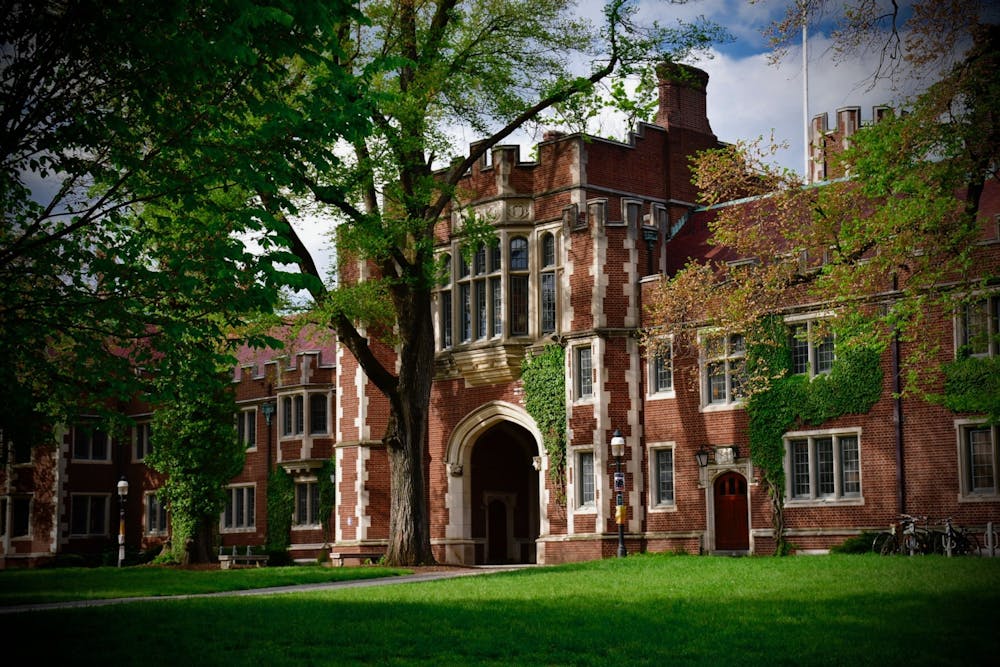The University’s Department of Religion and Program in Population Studies (PIPS) have announced they will not accept graduate school applications for the fall 2021 cycle in order to better support current graduate students.
The religion department and PIPS’ decisions follow the sociology department’s announcement in May that it would suspend graduate admissions for the 2020–21 admission cycle. No other department has made a similar announcement.
In their announcement, the Department of Religion acknowledged the consequences of COVID-19 on graduate students’ career paths.
“We have made this difficult decision in consideration of the impact of COVID-19 on academic progress and professional opportunities, and have chosen this course to ensure that we have adequate resources to support those students currently in our program,” the religion department’s announcement stated. “The graduate program remains a core commitment of the department’s work, and we look forward to welcoming a new cohort of graduate students when we resume admissions next year.”
PIPS decided not to accept applications for the 2021–22 academic year “to remain in alignment with sociology regarding the sequencing of courses where there is overlap between PIPS and sociology students,” University Spokesperson Mike Hotchkiss said in a statement to The Daily Princetonian.
According to professor of religion and philosophy Andrew Chignell, the religion department will allocate resources to help current students finish their dissertations and find jobs in an “anemic job market.”
“We know that the job market is going to be weak for a while, and that some of you are engaged in research projects that have been directly or indirectly affected by the pandemic,” Chignell wrote in a letter to the religion department graduate students. “It has also become clear that the University is not going to do something for grad students as a whole, but prefers to leave it up to individual departments to find solutions.”
Chignell also explained that the religion graduate program does not have as much funding as some other departments, due to the fact that — founded in 1955 — it is one of the University’s newer departments.
As a result, religion does not have the “deep pockets and extra resources that some older departments do,” Chignell wrote in an email to the ‘Prince.’
“So while those departments are able to help their students on an ad hoc basis using existing endowments, we have to swap a whole year’s worth of new students in order to acquire funds required to support the ones we have,” Chignell wrote. “We’re willing to do that, and grateful for the opportunity. But many members of the department found it regrettable that the University wasn’t able to adopt a uniform, centralized approach to supporting graduate students during this crisis.”
Some graduate students shared positive reactions to the announcement online, along with frustration that the University did not make universal support available for graduate students.
“I think this was the right decision — but it was wrong of the University to make the [department] decide like this,” religion Ph.D. candidate Yitz Landes tweeted. “We need to now redouble our unionization efforts, and I look forward to seeing our [professors] support [Princeton Graduate Students United (PGSU)], given that they clearly recognize the tough spot we are in.”

On Sept. 1, Deputy Dean and Acting Dean of the Graduate School Cole Crittenden sent a memo to all departments in the humanities and social sciences regarding the framework for enrollment and funding extensions.
The deadline to announce forgoing admission for one year was Sept. 9, but Ph.D. programs still have until Dec. 18 to make an additional one-time reduction in next year’s cohort.
Most departments have already announced one-time reductions in the coming year’s cohort to better fund current students. A reduction of one student allows 10 semesters of funding, as five years is the median amount of time taken to complete a Ph.D. Degree.
Crittenden explained that this extra funding is flexible and may be used to fund 10 current students for an extra semester or five current students for two additional semesters. He deemed the support necessary because with the coronavirus pandemic, students may need additional extensions on coursework and exams.
Many students in the Department of Religion will receive an extension of at least one extra semester and most of the extra funding will be used to support students with their dissertations for an extra semester or two over the next five or six years.
A one-year extension may be the maximum possible, so Crittenden urged the humanities and social sciences departments to encourage students to be open to adjusting or reviewing their research so that they can complete a dissertation in the current environment.
“[W]e do know that we cannot provide indefinite extensions for delayed research, as doing so would come at a serious cost to students’ ability to complete the degree and to their long-term professional trajectories,” Crittenden wrote. “It would also come at a serious intellectual cost to departments, as departments could not bring in new students for an extended period if they continue to redirect most or all of their funding for future students to current students.”
PGSU did not respond to requests for comments at the time of publication.








